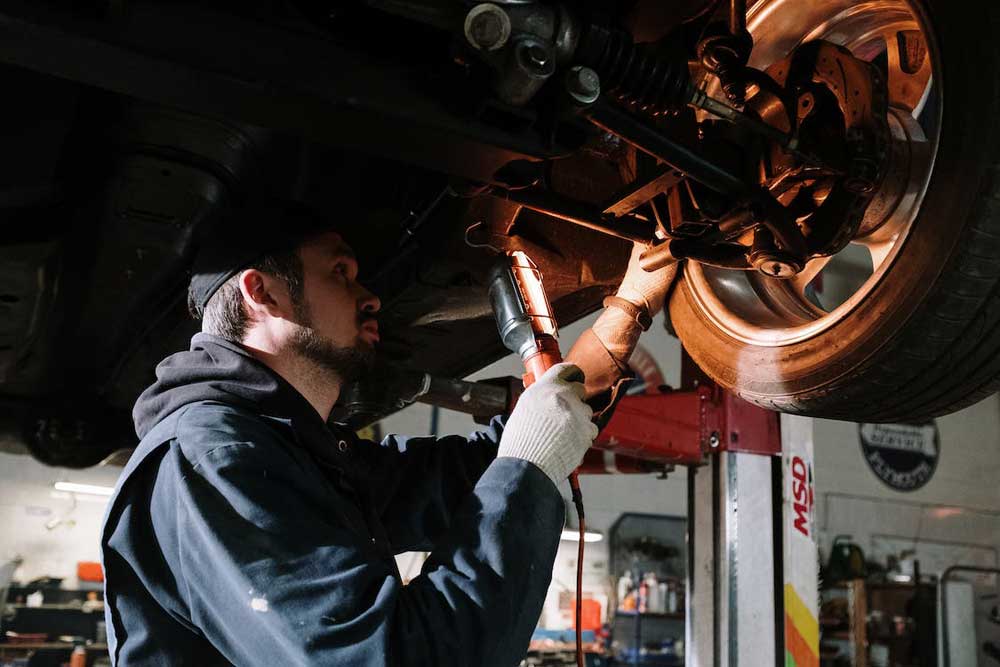Diesel mechanics and technicians remain in high demand across the U.S., with 73,300 job openings being added on average every year through 2031, according to the Bureau of Labor Statistics. That’s good news for anyone looking to break into the auto industry. What’s better is that most mechanics don’t have to travel far for work, considering nearly every city and town in the country has at least one auto shop. Find the places with the most demand while getting the most money for your time relative to the cost of living. Small and midsize cities accounted for 43 of the top 50 cities for mechanics and technicians, based on a recent survey from AdvisorSmith.
The terms “mechanic” and “technician” tend to be synonymous with one another in the auto industry, but they can refer to different types of jobs and may require different skill sets. Both involve the maintenance of diesel vehicles, which usually means replacing broken diesel truck parts. But the difference usually lies in what kinds of parts are being repaired and the types of tools used to complete the job.
The word “mechanic” comes from the term mechanics and refers to the mechanisms that power various machines, such as belts, gears, pistons, and other parts that often need to be repaired. “Technician” comes from the word technology, which refers more to computers, software, and digital components that power many of the machines we use today, including diesel vehicles.
What is a diesel mechanic?
A diesel mechanic is a professional who repairs diesel vehicles for a living. They answer customer questions, diagnose problems, fix and replace broken parts and systems, and help drivers avoid problems on the road. They may work in a shop that caters to both gas and diesel vehicles or specialize in repairing a particular kind of diesel engine, such as those used to power agricultural equipment, generators for producing electricity, submarines, and maritime vessels.
The job can range from simple tasks like swapping out filters to more complex jobs where it’s up to you to figure out what’s wrong with the vehicle. When it comes to diagnosing problems, you can test individual components or use more advanced diagnostic tools that analyze the onboard vehicle computer to quickly determine the source of the problem. It takes years of experience to spot the problem without using these devices. For example, Ford Powerstroke engines tend to run into problems with the exhaust gas recirculation (EGR) cooler after a hundred thousand miles or so, which leads to poor fuel efficiency and overheating. You can replace the EGR cooler as soon as you recognize these symptoms
Most mechanics now use electronic diagnostic equipment to increase efficiency, so you’ll need to spend time learning how to use these devices, including what all the different error messages mean and how to fix them. Some problems can be harder to stop, especially if they have yet to do serious damage to the vehicle. The diagnostic tool will only be able to find the issue if the sensor or part has already failed. Reduced fuel efficiency tends to be a major concern among drivers, and poor mileage is often the result of another underlying problem. It’s your job to help your customers save money. Replacing faulty fuel system parts is often cheaper than burning through more fuel than is necessary.
Requirements:
- High school diploma or equivalent
- Ability to stand, crouch, lean, or kneel for long periods of time
- Capable of lifting objects, usually no more than 40 lbs.
- Experience using tools like wrenches, screwdrivers, pliers, ratchets, and power tools
- Knowledge of a wide range of diesel vehicles or engine types
- Strong customer service
- I am able to learn the latest technology, including diagnostic tools and digital meters
What Is a Diesel Technician?
Diesel vehicles are becoming increasingly technically advanced as automakers look for ways to increase efficiency. The average diesel truck can now contain over 200 different sensors, each tasked with monitoring a certain aspect of the vehicle’s performance. These sensors relay their findings back to the engine control unit, which controls the fuel injection process that powers the engine. Even though diesel technicians perform many of the same tasks as mechanics, they tend to focus their attention more on the technical side of things, mainly using diagnostic tools as well as testing, resetting, and replacing electronic sensors. A technician should know how these often-complex parts work inside and out so they can troubleshoot them when they malfunction.
Diesel technicians don’t always work in auto shops. Some work in factories or labs as part of the testing and design process.
Requirements:
- High school diploma or equivalent
- Knowledge of a wide range of diesel vehicles or engine types
- Strong customer service
- Experience using the latest technology, including diagnostic tools and digital meters
While not required, having a postsecondary education in diesel engine repair can increase your chances of getting hired as a technician because of the added complexity of this technology.
Which is right for you?
These terms are only becoming more synonymous with each other as more technology gets added to diesel vehicles. If you’re planning to be a mechanic, you don’t have to focus on the technical side, but you should at least familiarize yourself with these tools. It will make your life a lot easier and increase your job prospects.
If you want to be a technician, plan to invest in some postsecondary education or do your own research by combing over technical specifications, user manuals, and the latest trends in vehicle technology. These devices and gadgets represent the future of the industry, and the average vehicle will only get more advanced in the years to come. It’s all about working smarter, not harder. Keep this information in mind when looking for a job as a diesel mechanic/technician to make sure it’s the right fit for your skill set.

